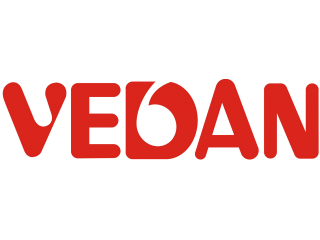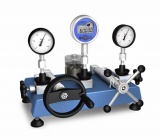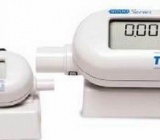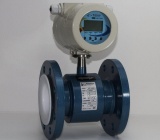ANALYTICAL INSTRUMENT CALIBRATION SERVICES

Contents
- What Are Analytical Instruments?
- Analytical Instrument Calibration
- Why Shoud Analytical Instruments be calibrated?
- Calibration Equipments
- Dong Tam's Analytical Instrument Calibration Services
See also: Onsite calibration service at customer's factories.
Analytical instrument calibration is a critical activity for businesses in all areas of industrial production. Regular calibration ensures the necessary accuracy, minimizes system errors, and maintains the quality of products and the efficiency of processes. It's an essential part of quality assurance and regulatory compliance in many industries.
1. What are analytical instruments?
Analytical instruments, is a broad category of tools used to qualitatively or quantitatively measure the composition, characteristics, properties, structure, and state of substances. They are used to perform measurements, analyze concentrations, and determine the properties of materials...
Analytical instruments are classified according to their applications and are used in a wide range of fields. They are essential tools in laboratories and various industries, including environmental studies, process measurements, medical, pharmaceutical, chemical, biological, food processing, and more...
Analytical instruments are crucial in testing and quality control processes across various industries. Several analytical tools help to monitor and control environmental pollution. The integration of microcontrollers and personal computers into analytical instruments has indeed revolutionized the field, leading to improved accuracy, efficiency, and automation.
The instruments, such as spectrophotometers, refractometers, calorimeters, electrochemical meters, conductivity meters, automatic density meters, automatic titrators, colony counters, demagnetizers, and fiber meters, are indeed some of the most commonly used analytical tools today.
2. Analytical Instrument Calibration
Analytical instrument calibration is a technical process that aims to establish and define the correlation between the value measured by a standard and the value measured by a device. This process is crucial for assessing the margin of error and determining the precise measurement parameters of the device. If the detected error falls within the permissible range or meets the usage criteria, the device can be used as usual. However, if the error exceeds the acceptable limit or fails to meet the usage criteria, suitable corrective actions must be implemented.
Regular calibration of analytical instruments is a crucial step to ensure accurate and reliable measurements. This process helps in maintaining the operational status of the device, while also preventing potential issues caused by damage, drift, and errors. Regular calibration is essential for maintaining the quality of processes and products, supporting production activities, and upholding the reputation of businesses.
2. Why Should Analytical Instruments be calibrated?
Analytical instruments can experience changes in their characteristics over time, leading to deviations in the results they provide. This can be due to the aging of the device or its frequent use in harsh environments. Therefore, regular calibration assists businesses in the following ways:
- Determining the error, deviation, and measurement uncertainty of the device.
- Ensuring accurate measurements are the foundation for product quality, safety, manufacturing, and research.
- Linking measuring instruments to precise and reliable measurement standards, thereby ensuring the precision of measurement outcomes across all devices involved in the procedure.
- Enabling early detection of any irregularities in the device's operation, which may lead to unreliable measurement results. This allows for timely corrective actions, repairs, or replacements to maintain product quality, production efficiency, and health and environmental safety controls.
3. Calibration Equipments

Conductivity Meters
A conductivity meter is a device used to measure the electrical conductivity of a solution. It’s an essential tool in various fields, including environmental science.

UV-Vis Spectrophotometers
It is a device that analyzes a light beam with many components into different monochromatic components. By analyzing the wavelengths of light that were absorbed (and those that were not), researchers can determine the chemical composition of the sample.

Turbidity meters
A turbidity meter is used to measure the turbidity, or cloudiness, of water or other solutions.

pH Meters
A pH meter is an analytical instrument used to measure the acidity or alkalinity, also known as pH, of a solution.

BOD Meters
A BOD (Biological Oxygen Demand) is a device used to measure the amount of oxygen required by aerobic microorganisms to decompose the organic matter present in a sample of water. This is an important parameter in water quality testing, particularly in wastewater treatment plants, environmental organizations, and specialized analysis rooms.

DO Meters
A Dissolved Oxygen (DO) meter is a device used to measure the amount of oxygen dissolved in water, which is a key indicator of water quality. This parameter is crucial for monitoring the health of aquatic ecosystems.

TSS Meters
Total Suspended Solids (TSS) meters are indeed used to measure the total amount of organic and inorganic matter suspended in water. When these substances interact with light, they cause turbidity.

Chlorine Meters
Chlorine meters are specialized devices used to measure the chlorine concentration in water samples.
.png)
ORP Meters
Oxidation-reduction potential (ORP) meters are specialized tools used to measure the ORP index, which is a measure of the ability of a water sample to reduce oxidants.
.png)
Hydrometers
A hydrometer is a device that measures the relative density or specific gravity of one substance to the density of another substance, typically water, under certain conditions. Changes in this density can be used to infer various properties of the liquid, such as alcohol content, sugar content, and salinity. However, it does not measure these properties directly.
.jpg)
Digital Stopwatches
A digital stopwatch is a handheld device that measures a specific period of time. It starts calculating time from the moment it’s activated and stops when the user presses the stop button.
6. Dong Tam's Analytical Instrument Calibration Services
Dong Tam Measurement and Technical Trading Service Co., Ltd, located in Ho Chi Minh City, is a leading provider of calibration services for a wide range of analytical instruments. We offer these services at competitive prices, ensuring cost-effectiveness for our clients. Our commitment to time efficiency and comprehensive customer support extends across the nation, making us a trusted partner in calibration solutions.
We are committed to providing our customers with:
- Calibration services are accredited to ISO/IEC 17025:2017 standards.
- The lab's temperature and humidity are strictly controlled to meet calibration requirements.
- Onsite calibration: Our onsite calibration service is designed to save customers time and costs, with calibration results as precise as laboratory calibration.
- Well-trained Calibration technicians work under our rigorous internal procedures and fulfill customer-specified requirements for each order, whether in customer's location or laboratory.
- We offer timely, accurate, and effective services. Our calibration certificates are user-friendly, providing reports on measurement results and errors. Calibration certificates are securely archived in our system and can be quickly retrieved through the Certificate Information Lookup Portal on our website.
To consult and request for quote on our Analytical Instruments Calibration services, please kindly contact us via the following information:
LABORATORY: DONG TAM MEASUREMENT AND TECHNICAL TRADING SERVICE CO., LTD
ADDRESS : No.57-59 Street 11, Binh Hung Residential Area, Binh Hung Commune, Binh Chanh District, Ho Chi Minh City
TEL: 028 375 83 869 - Hotline: 0909 347 891 (Mr. Lâm)
Email: info@dongtam-mes.vn























 Legal
Legal  Call: 0283.7583869
Call: 0283.7583869  Search for Certificate
Search for Certificate  Contact
Contact